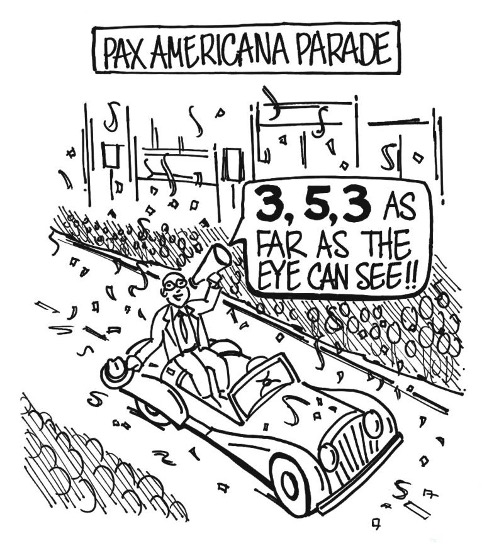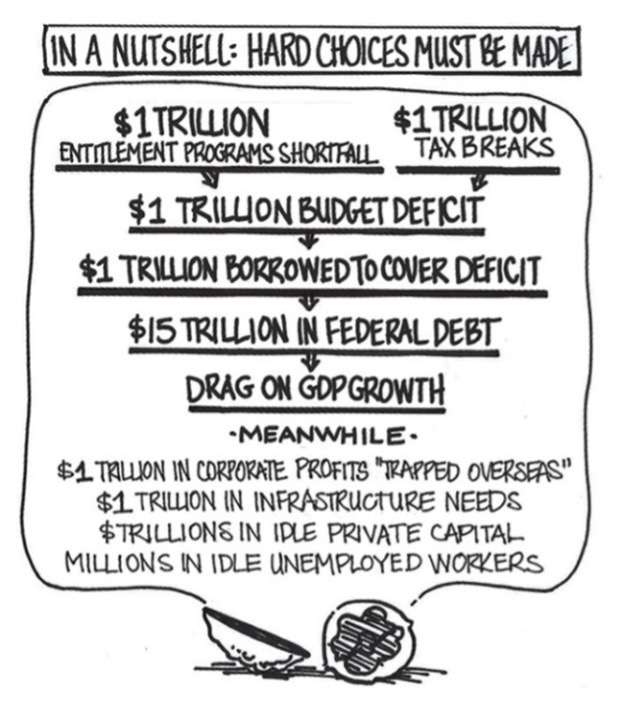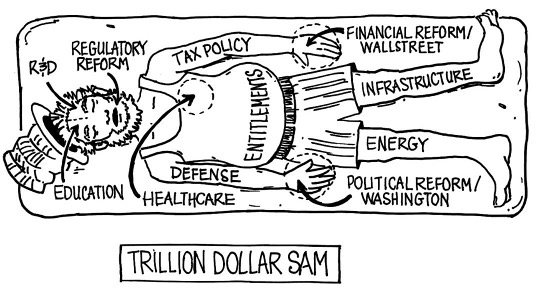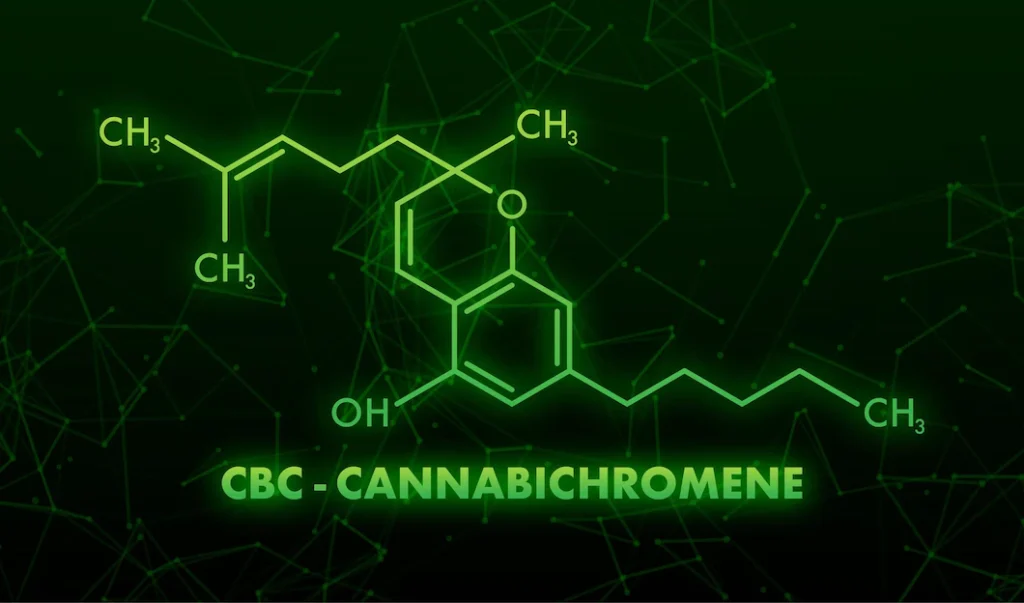
By The Numbers: Pax Participation – The Next 20 Years
May 12, 2021

This week’s By The Numbers blog is written by Jason Leach, Director of Finance at Zilis™, and focuses on our current environment in context of the last 20-year period and the coming 20-years, discussing how we have the opportunity to be participants in sustainable change – and how hemp and hemp-based products are integral to sustainability. (Note: Pax Americana is “American Peace”).
Over the second half of the twentieth century, much of the developed and emerging world enjoyed a period of relative peace and prosperity – a Pax Americana of sorts.
In the last twenty years, we’ve experienced three global crises spaced roughly ten years apart (2000, 2008, and 2020). Out of these successive crises, we are recognizing more and more that our individual actions as citizens have real macro global consequences. We are becoming increasingly aware of the global inter-dependencies of an ever more connected environment and the need for us to participate in improving it. I believe we are undergoing a re-organization of thinking, taking more personal responsibility as stewards for sustainability of societies, economies, and the environment through our choices for consumption, health, and advocacy. We are on the precipice of change from the “spectator and speculator” mentality that dominated the early part of this century into one of “personal responsibility”.

In the 1990s, the fall of the Soviet Union (peace dividend), computerization, internet availability and Wall Street de-regulation led to a time of growth, excess and euphoria, complete with sock puppet commercials and stock trading cafes. The market crashed in 2000, bankruptcies followed and, combined with 9/11, the public was left with a damaged psyche. We quickly learned we were not on an escalator to nirvana because we got email and palm pilots, and that blind faith in institutions (e.g. Wall Street banks, WorldCom, and Enron) to do the right thing may have been misguided. For the first time in decades we weren’t looking outward (i.e., the Soviet Union), but inward. What were we doing wrong? Partly, it was blindly trusting institutions, public and private – but ultimately we were “spectators and speculators”.
It took more than one time to learn though, as an easy money real estate boom followed from 2003-2007 with a bust in 2008-2009. Out of the second financial crisis in a decade, the list of culprits was the same: Wall Street and Washington, and us – spectators and speculators. We did become more aware of our individual responsibilities in societal outcomes, though (such as mortgage derivatives on neighbors’ homes in Vegas bankrupting towns in Iceland) and significant movements arose demanding change (e.g. Occupy Wall Street and the Tea Party). They ultimately faded amidst the 2009-2020 bull market – the longest in U.S. history that ended with the Coronavirus pandemic in March 2020.

In the past year, it’s started to feel like the 21st century may need a mulligan. The cause was not speculation this time around and we didn’t watch as our neighbors lost a home due to a no doc (meaning no income verification) mortgage. We all participated in working through a global pandemic. Three scares in twenty years will turn one from a spectator to a willing, active participant to improve things – to change our vector or course. The global pandemic, the third crisis in 20 years, has made us more acutely aware of resources, our dependence on them, and how we manage them for our health and wealth. Think about select sustainability issues we’ve encountered over the past year and how sentiment is changing:
- Consumable Necessities: Increased awareness of unsustainable concentrated mega agriculture, shortages of toilet paper, vegetables and meats making us re-think sustainability;
- Preventives to Vaccines: More focus on natural remedies for sustainable health, shortages of vitamins, sanitizer, masks, vaccine waits; and
- Power and Electricity: How we balance sustainable types of power with legacy energy – the Texas outage.
A boomerang rebound in economic activity is now occurring as happened after the Spanish Flu Pandemic of 1917-1918 (discussed in By The Numbers: It’s a Structural Strain). The U.S. economy grew 6.4% annualized in the first quarter of 2021 following 4.3% growth in the fourth quarter of 2020 (https://bit.ly/33ciRz0). As discussed in previous “By The Numbers”, a new Roaring Twenties of economic progress awaits with technological and biomedical advances, and more decentralized blockchain finance amongst other very positive developments on the horizon. Remember, the 1920’s was the most innovative decade in human history and we have a chance to rival that.
The question then is how are we going to be active participants in sustainable growth in coming decades?
The revived hemp industries have provided a model of sustainability over the last 20 years that we can learn from as we look forward to coming years of positive change. Hemp-derived cannabinoids have undergone mass adoption for natural personal wellness, the protein and Omega-rich hemp seed is taking the food and beverage industry by storm, and hemp’s myriad other historical, modern, industrial and sustainable uses are undergoing increased adoption, including:
- Plastics: Hemp plastics and biocomposites are stronger than petroleum-based plastics and can be manufactured to be non-toxic and biodegradable;
- Textiles: Hemp is the longest, strongest fiber in the world – it wears in, not out; cotton is an exceedingly water hungry crop that uses 10% of the world’s pesticides and 25% of the world’s insecticides to produce a short fiber that is significantly inferior to hemp’s long and strong fiber;
- Paper: One acre of hemp produces four times more paper than one acre of trees over a 20-year period, which is the average time it takes to grow a tree for paper, and hemp doesn’t require harsh chemicals to be broken down into pulp, nor does it need to be bleached, eliminating the dioxin-poisoning of the water table;
- Building Materials: Hempcrete is a highly energy efficient, non-structural, carbon sequestering, rot-, mold-, pest-, and fire-resistant insulation that lasts hundreds of years and provides optimal indoor air quality;
- Fuel, Batteries, Pellets, Charcoal & Supercapacitors: Hemp-based biofuel is significantly cleaner than gasoline and can be produced purely, hemp stalk pellets have a higher energy content and lower ash content than wood, and hemp is superior to graphene for energy storage; and
- Farming: With proper agronomic and regenerative practices, hemp can help build soil and can be produced with a no-till regime, its thick canopy suppresses weeds which can reduce and in most cases eliminate the need for herbicides, as a rotational crop hemp can help break the pest cycle, and the hemp crop serves as a new pollen sources for our pollinators.
Sustainable economic and environmental initiatives certainly did not start with 21st century trials. Teddy Roosevelt founded the national park system a century ago, the 1933 Glass-Stegall Act under cousin Franklin provided for strong wealth creating markets for decades, and climate activism in the 1970s prompted cities from Long Beach to Houston to New York to get cleaner, with “Don’t mess with Texas” cleaning up littered highways well into this century. But after the events of the past year, we are more acutely aware of all things sustainability – economy, supply chains, agriculture, health, energy and environment.
And now we are doing more than just separating trash, we are changing how and what we consume, who we’re giving our money to when we make purchases, how we prevent illness and heal, and how we will use our precious resources. We are undergoing a re-organization of thinking around our interconnectedness. We are increasingly thinking about the highest and best uses of our capital and resources for ourselves, our families and our societies – about sustainability. And, whatever goes on in Washington or elsewhere, we are less spectator and speculator than before.
Hemp is a structural change. We need structural change. I made “Trillion Dollar Sam” (pictured below) after the last crisis to delineate the opportunities that lay ahead if we could match trillions in capital with highest and best uses – if hard choices could be made. There was opportunity in crisis for significant structural change and at the time there was a mismatch that I thought could be rectified. Sociologists and historians often denote 20-year patterns in history. We’ve certainly identified such a period, we just lived through it, and we’ve come out less “spectator and speculator” and much more “participant and change agent”.


The mantel has now been passed to this 20-year cycle to do what’s best, and hemp will be a big sustainable part of the new economy going forward. The hemp-based CBD industry and broader modern hemp industries were born out of healthy sustainability – it’s a natural fit. And I think, this time we are up for it. We’ve been forced into making hard choices collectively the past year. I think we will actively make healthy, sustainable choices going forward with eyes wide open to the broader global impact, as change agents in the new sustainable economy. Our newfound awareness and participation will ensure more stability in the health and wealth of nations going forward – a sort of Pax Participation to look forward to.
About Zilis’ Scientific Research & Development Department:
Our Scientific Research and Development Department is headed up by Dr. Marielle Weintraub, a hemp industry expert. She holds a master’s and a PhD in Behavioral Neuroscience and is very active in many dietary supplement and hemp industry trade associations, including her role as the current President of the U.S. Hemp Authority. Dr. Weintraub is committed to the continued development of hemp-specific information and testing to fulfill the Zilis mission.
Zilis is the creator of UltraCell™, a CBD oil product derived from hemp. Based in Argyle, Texas, a suburb of Dallas-Fort Worth, Zilis is privately held. Visit zilis.com for more information.
SHARE THIS POST
ABOUT THIS BLOG
Discover : The blog with the lifestyle, nutrition, science, and history of the hemp industry.
It’s your go-to for the most up-to-date information on hemp, CBD, dietary supplements, and more! Check it out!







